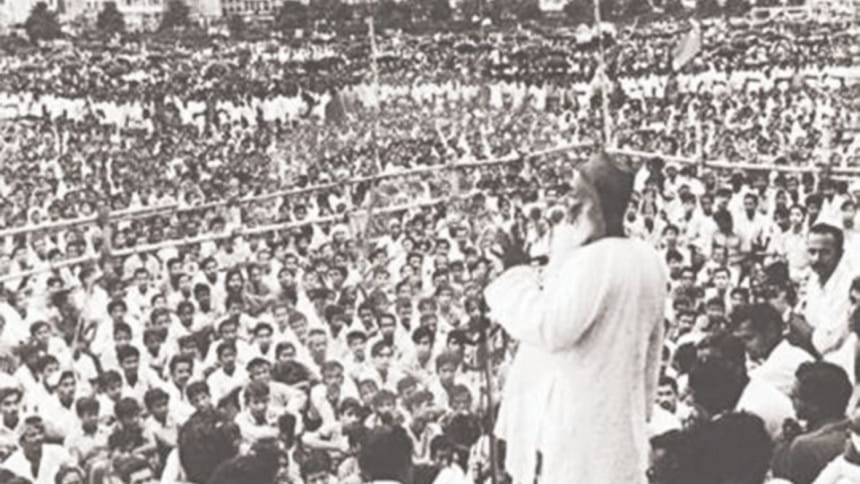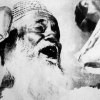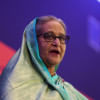Lessons of Freedom

I shall begin with a story, to which I will return again. In 2013, on the occasion of the 37th death anniversary of Maulana Bhashani, I met the vivacious and spirited 84-year old Burhan Uddin in Tangail (passed away in 2014). Bhashani's murid of 50 years and a peasant for far longer, his dress of straw cap, white punjabi, lungi and a wispy bead mimicked that of his Pir or, in his own words, the 'maha nayak' (great leader),'maha bidrohi' (great rebel) and the 'maha pralaykari'(one who causes complete dissolution of the universe). In excited tones, he proceeded to me at length, stories about Bhashani, much of it would have many enthralled, especially his wonderful and fantastical descriptions of Bhashani flying over trees with his boat protected by an ambush of tigers and of the thwack of his lathi reverberating across the entire subcontinent. However, there was one story in particular that struck me the most. On the 21st night of Ramadan 2012, Maulana Bhashani visited Burhan Uddin and told him the 'villain' American imperialism would soon be defeated, and to carry out a shongram (struggle), modern weaponry were no longer effective. The next andolan, Bhashani informed him would be on electricity.
To quote Walter Benjamin and, hopefully, in a not-too-random way: "what has been forgotten.... is never something purely individual." My academic research on Bhashani over the last five years stands as a testament to that. To forget Bhashani is to forget the histories of poor and landless peasants, sharecroppers, char-dwellers, and workers; it is to forget the rich and dynamic contributions of the secular and of the religious; our wider geographies, fraternities and networks; the progressive, radical and defiant voices that once were; and the possibilities and futures that people fought for until bodies were fatigued, battered, bloodied or just ceased to be. Our humanity, our redemption and our liberation must lie in the recovery of all our histories even the most obscure, reviled and rejected elements of it.
The intention of the article is not to offer a panegyric, faint praise, prescription or timelines, all of which have been done elsewhere by others, but something different. Let us return back to Burhan Uddin. To others, his stories might have appeared as the byproduct of a semi-literate, irrational or senile mind. Burhan Uddin's ability to think and feel emotions his way through complex issues of injustice, power, resistance, and humanity using the complex figure of Maulana Bhashani, rather, spoke to me of the product of a powerful pedagogy: a pedagogy of emancipation. I offer then an outline of the pedagogy, or, rather, the lessons of freedom that can be found in Bhashani's politics. This is an incomplete pedagogy because it comes from the fragments of speeches, practices and relationships that I have been able to excavate. Bhashani, unlike many of his contemporaries in South Asia, has left us with few written footprints of his own ideas, thoughts or philosophy.
So, what are the lessons of freedom then? First is the non-deferential and irreverent attitude towards those in power. Bhashani remembered nowadays as the 'Red Maulana' was known by other names during his time. The choice ones being the 'Prophet of Violence', the 'Pakistani Dean of Canterbury', 'Pakistani Ayatollah Kashani', 'Bharat's Dalal' (India's Agent), 'Hanuman' and 'Kaafir'. All names given to him by the British, Americans, Pakistanis and Bengalis alike not out of admiration but contempt. A consequence of Bhashani's caustic, abrasive and coarse tongue, which spared no one, especially those in power, friends and foes alike. In September 1956, the Awami League came into power at the centre and at the provincial level – the only time in the history of Pakistan. However, the victory rally at Paltan Maidan was to be anything but that. Bhashani, flanked by his two distinctly uncomfortable chief guests on stage, the Prime Minister Suhrawardy and Chief Minister Ataur Rahman Khan, warned the crowd: "If the Awami League mandate is not fulfilled, we will throw out the Suhrawardy Ministry with our lathis." A grimacing Abu Zafar Shamsuddin in his memoirs wondered why Bhashani had not been able to say those things in less 'uncivil' and offensive manner. Bhashani's performance, however, was not for the benefit of those who sat on stage, but for those who milled below in crowds. It was a lesson in holding those in power accountable, of being critical, of speaking truth to power, and refusing subservience to it even in democratic spaces. Paulo Freire, the Brazilian educator and philosopher wrote 'the educator has the duty of not being neutral' and Bhashani was not. When confronted with excesses of power and injustices, Bhashani reminded the people that it was they who held the real 'whip' in their hands; the true sovereigns.
The second lesson is the unabashed embrace of the diversity and heterogeneity of cultures, identities, and spaces in Bengal. Bhashani's residence in a village in Tangail, outside the political capital of Dhaka; his work in North Bengal; the constant boat tours to char-dwelling communities of Assam and Bengal; and his organisation of conference for Imams alongside the Kagmari cultural festival in 1957 was not just about Bhashani being the common or simple man. It was an affirmation of non-elite lives; that these communities mattered, and that they too possessed and produced rich and complex cultures, politics, traditions and histories of dignity, justice and freedom. It is for this reason that Bhashani was not too tortured by the question of whether he was a Marxist or a Maulana, or any real contradiction between making a murid signing up to a pledge to end capitalism, anti-imperialism and establish socialism and Marxists entering mosques and religious gathering to raise political funds. Bhashani showed that both traditions belonged in the soil of Bengal and could be brought into dialogue.
Third, was a lesson in what I would call a rooted humanity. In February 1957, Maulana Bhashani planned the Kagmari conference and a three-day-long cultural festival. Bhashani would go head-to-head with Suhrawardy over the latter's defence for military pacts. Where Suhrawardy made his case for being part of the military pacts in front of middle-class intelligentsia and students in Dhaka, promising the latter trips to Baghdad Pact countries, Bhashani made his case for international co-operation, friendship and solidarity to rank and file workers of the Awami League and to peasants and workers vis-à-vis the gates, songs, dance, lectures and debates at Kagmari Festival. Bhashani showed that international solidarity and humanity were not abstract or complex concepts only to be grasped by the elite but were rooted and demonstrable through local practice, customs and traditions.
The affirmation of people power, of non-elite cultures and communities, and of humanity, which is at the heart of Bhashani's pedagogy still bears relevance. In fact it is perhaps more important than ever before, for where are the lessons of freedom in Bangladeshi politics today? If you cannot find it, then perhaps we all need to start talking about Maulana Bhashani.
The writer is Bengali Curator of 'Two Centuries of Indian Print' project at the British Library.

 For all latest news, follow The Daily Star's Google News channel.
For all latest news, follow The Daily Star's Google News channel. 





Comments